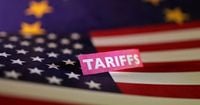In a world increasingly affected by trade tensions, the recent comments from former Thai Finance Minister Suchart Thadathamrongvech highlight the urgent need for countries to protect their interests against U.S. tariff measures. Speaking from Bangkok on May 6, 2025, Suchart warned that nations yielding to U.S. demands risk greater harm, particularly as the U.S. tariffs disproportionately affect developing countries like Thailand.
Suchart described the U.S. tariff policies as "one sided" and lacking theoretical justification, stating, "There is no reason to bow to U.S. pressure." He emphasized that the tariffs not only hurt countries like Thailand but also adversely affect American consumers. Suchart's analysis points to a broader trend where the burden of tariffs falls primarily on U.S. consumers rather than foreign exporters. He noted that the goods are disappearing from supermarket shelves and prices are rising sharply.
In light of these challenges, Thailand's Ministry of Finance has revised its economic growth forecast for 2025 from 3 percent to 2.1 percent due to the impact of U.S. tariffs and a global economic slowdown. The Thai central bank has warned that growth could plummet to just 1.3 percent in a worst-case scenario. Suchart urged members of the Association of Southeast Asian Nations (ASEAN) to remain steadfast in their support for free trade and to strengthen ties with other trading partners.
As the U.S. continues to impose tariffs, the closure of the de minimis rule on May 2, 2025, poses further challenges for companies like Temu and Shein, which have thrived on low-priced imports from China. The de minimis rule previously exempted U.S. imports worth up to $800 from tariffs, but its closure has exposed these companies to duties as high as 120% or a flat fee of $100, set to rise to $200 in June 2025.
Experts suggest that despite these challenges, Temu and Shein are likely to remain dominant players in the U.S. e-commerce market. Deborah Weinswig, CEO of Coresight Research, remarked, "Don't count them out ... Not at all. These kinds of Chinese e-commerce apps are very adept and agile." In anticipation of the de minimis rule's closure, both companies have been accelerating localization strategies to mitigate the impact of tariffs.
Scott Miller, CEO of e-commerce consulting firm pdPlus, noted that Shein and Temu are onboarding more local U.S. sellers to protect against tariffs. While margins may be lower for localized brands, they can still compete effectively. Temu has already begun exclusively offering goods shipped from local warehouses, while Shein is expanding its supply chain by building manufacturing operations in countries like Turkey, Mexico, and Brazil.
Despite these adaptations, the impact of Trump's trade policies continues to be felt across various sectors. Prices for goods on Shein have reportedly risen between 5% and 50% in the latter half of April 2025, with the most significant increases in toys, games, and health products. On May 5, 2025, Temu launched a "mega savings extravaganza" for American consumers, showcasing discounted items like stainless steel hook earrings for $1.45 and a fitted mattress pad for $11.54.
As the U.S. grapples with its trade policies, the European Union is also preparing countermeasures against the multitude of tariffs imposed by the U.S. European Trade Commissioner Maros Sefcovic announced on May 6, 2025, that U.S. tariffs currently cover 70% of EU goods trade and could rise to 97% following further investigations into pharmaceuticals and semiconductors.
Sefcovic emphasized that the EU prefers a negotiated solution but is prepared to take further action if necessary. The 27-nation bloc is currently facing 25% import tariffs on steel and aluminum, as well as reciprocal tariffs of 10% on nearly all other goods, which could increase to 20% after Trump's 90-day pause.
Published on the same day, a report highlighted the intricate web of global commerce that is undergoing significant transformation, with the U.S. playing a central role. The Treasury Secretary's recent disclosure of "very good trade proposals" from seventeen countries, notably excluding China, suggests a potential pathway towards more open trade corridors. However, the complexity of U.S.-China relations remains a significant hurdle.
The ongoing trade tensions have tangible repercussions across various industries, including automotive and entertainment. The automotive sector is navigating the complexities of newly imposed tariffs on imported components, while the entertainment industry faces potential tariffs on foreign-produced films, which could reshape the global cinematic landscape.
Investor confidence is also affected by the prevailing uncertainty surrounding global trade. Many companies are hesitant to commit to significant capital expenditures or hiring decisions in light of the unpredictable trade environment. Prominent figures in the investment community have suggested a temporary pause on tariffs with major trading partners to mitigate the adverse effects on economic growth.
As the U.S. Treasury Secretary engages with international investors, the underlying message emphasizes the nation's aspiration to remain a central pillar of the global financial system. However, achieving this goal depends on effectively navigating the complexities of international trade relations. The coming weeks will be crucial in shaping the future of global commerce, with ongoing negotiations and efforts to address existing trade disputes playing a pivotal role.
In conclusion, the evolving dynamics of global trade necessitate a careful balancing act for countries like Thailand, the U.S., and the EU. As nations respond to the pressures of tariffs and changing trade policies, the emphasis on protecting national interests while fostering cooperative trade relationships will be vital for stability and growth in the international marketplace.


